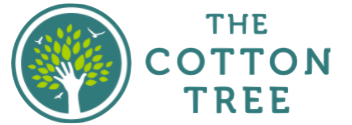Help with opening bank accounts
Cotton Tree makes it easier for Asylum Seekers and Refugees to open bank accounts
History
In late 2018, Michael Mark and Arnold Christo Leigh of the Cotton Tree opened talks with the Lloyds Banking Group’s Vulnerable Customers Team (VCT) to try to make it easier for asylum seekers and refugees to open bank accounts. At that time it was very difficult for them to do this for two reasons. First, they frequently lacked ID acceptable to banks. Second, they often could not provide acceptable evidence of where they had lived over the previous 3 years. Even where they could provide that evidence, at least one of the addresses (accommodation provided by the Home Office) was unacceptable because of activities of others who had been living there.
As a result of initial discussions, the Lloyds Banking Group, which includes Lloyds Bank, Halifax Bank and Bank of Scotland, accepted asylum registration cards (ARC) and biometric registration permits (BRP) issued by the Home Office as proof of identity and posted that information on the various banks’ websites. They also introduced a pilot scheme at a limited number of branches by which proof of address could be replaced by introductory letters from charities who had worked with the asylum seeker or refugee.
Notice of this was posted by Michael to members the Asylum Support Appeal Network email group (ASAN). He then also dealt with issues raised by members of ASAN, connecting them with the VCT where there were problems they needed to address. At that stage the VCT was very cautious about publicising the names of the pilot branches, and about dealing directly with charities other than the Cotton Tree.
New development
Following feedback to the VCT from Michael about the success of the pilot scheme and some of the problems encountered by charities working with branches, the scheme has now been extended to all Lloyds, Halifax and Bank of Scotland branches, with the warning that some branches may not be as experienced as others in dealing with asylum seekers and refugees and that there could be glitches as trained personnel move on.
In addition, the VCT has, with help from the Cotton Tree, made direct contact with ASAN members and held an open zoom session in December with representatives of some members at which they explained what they were doing and what the practical limitations were on what they could do. They also took questions from those attending and statements as to problems that had been experienced. Further sessions are planned for 2022.
A statement by the VCT following the December session was published by Michael on the ASAN email group. This included contact details for ASAN members to raise future problems opening accounts, directly with a member of the VCT who can give advice and take steps to resolve those issues promptly.
The Cotton Tree is proud that its efforts have resulted in this significant development which makes the lives of many asylum seekers and refugees and those helping them significantly easier in an area where there have been serious problems in the past.
